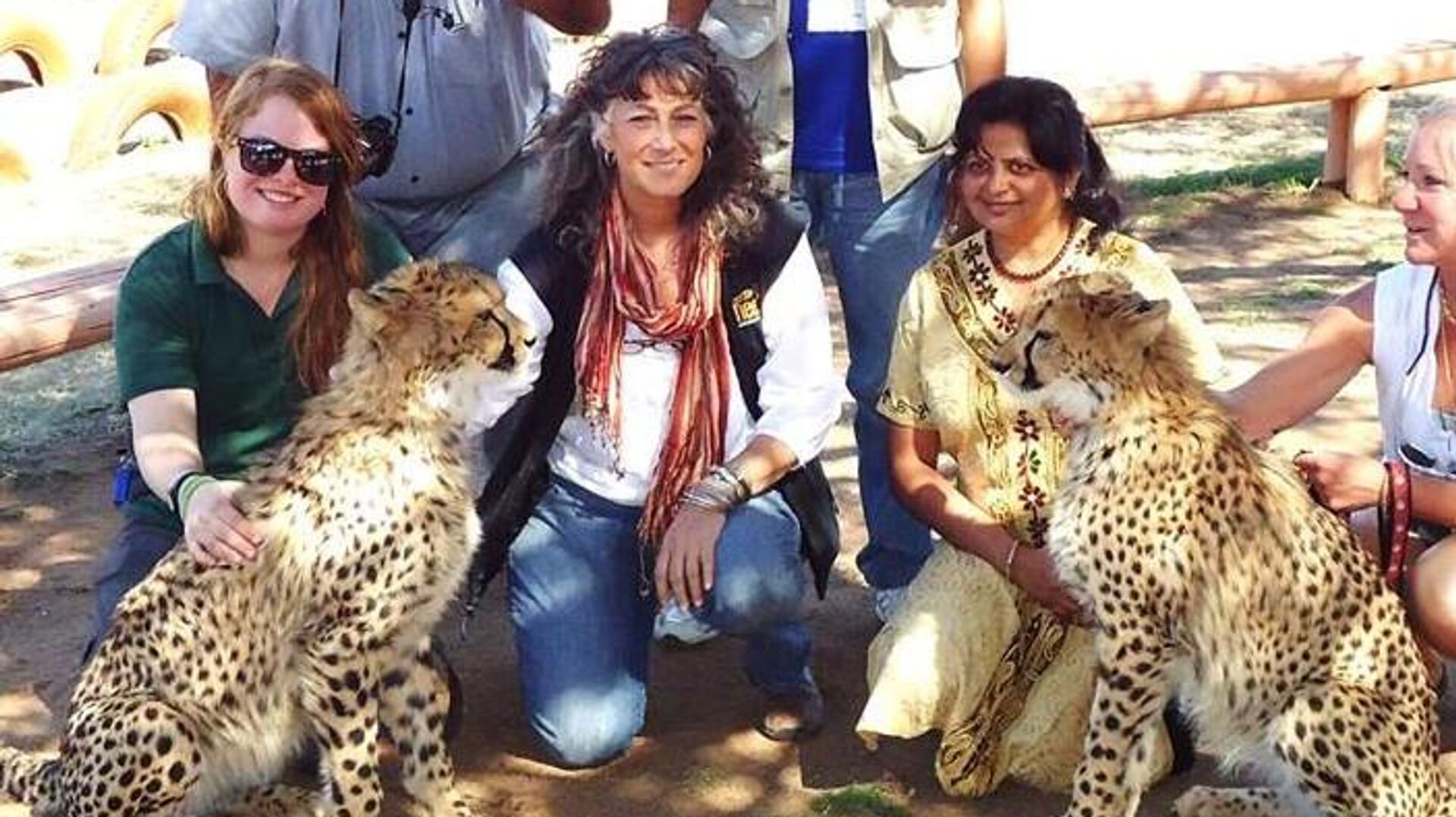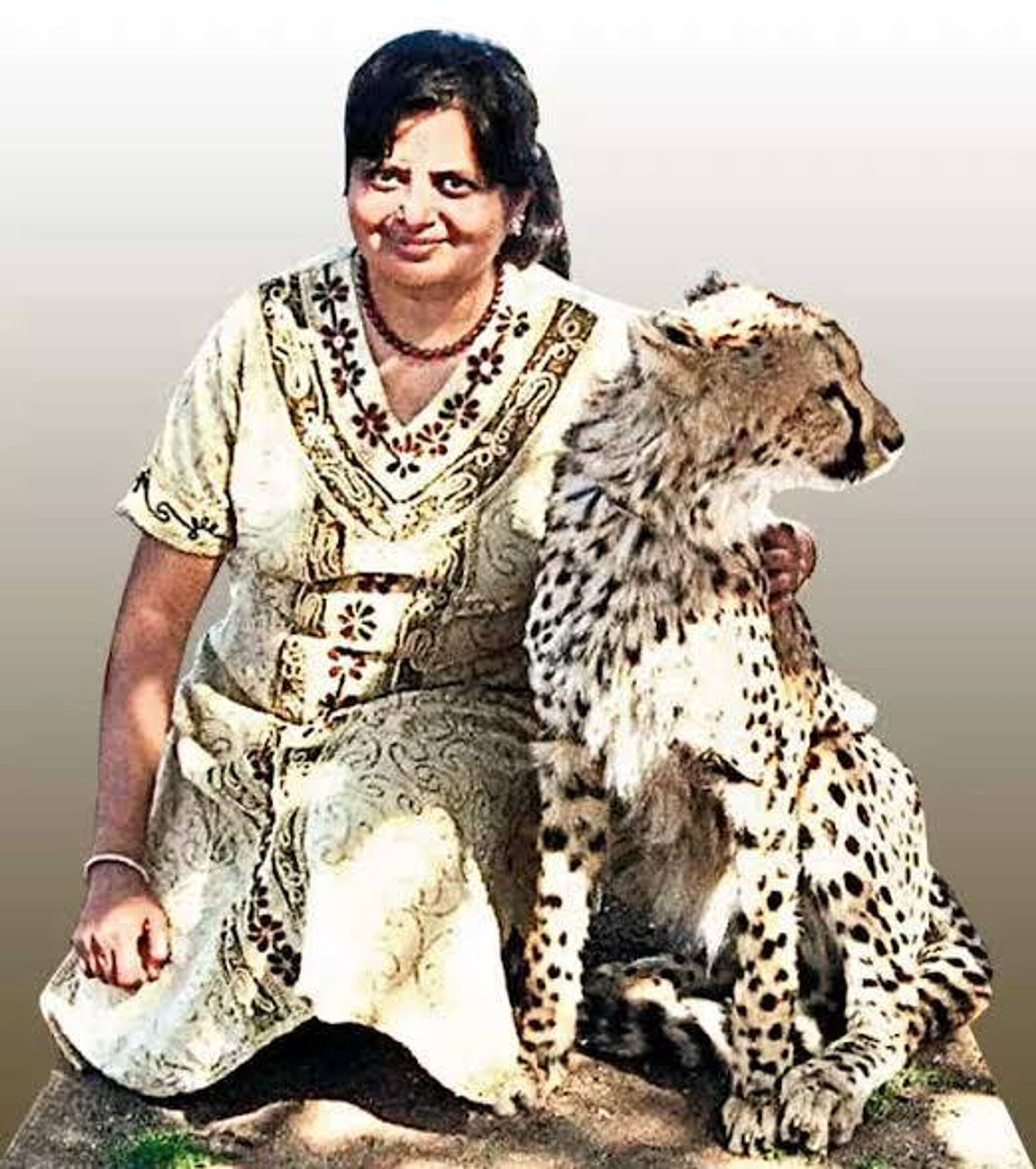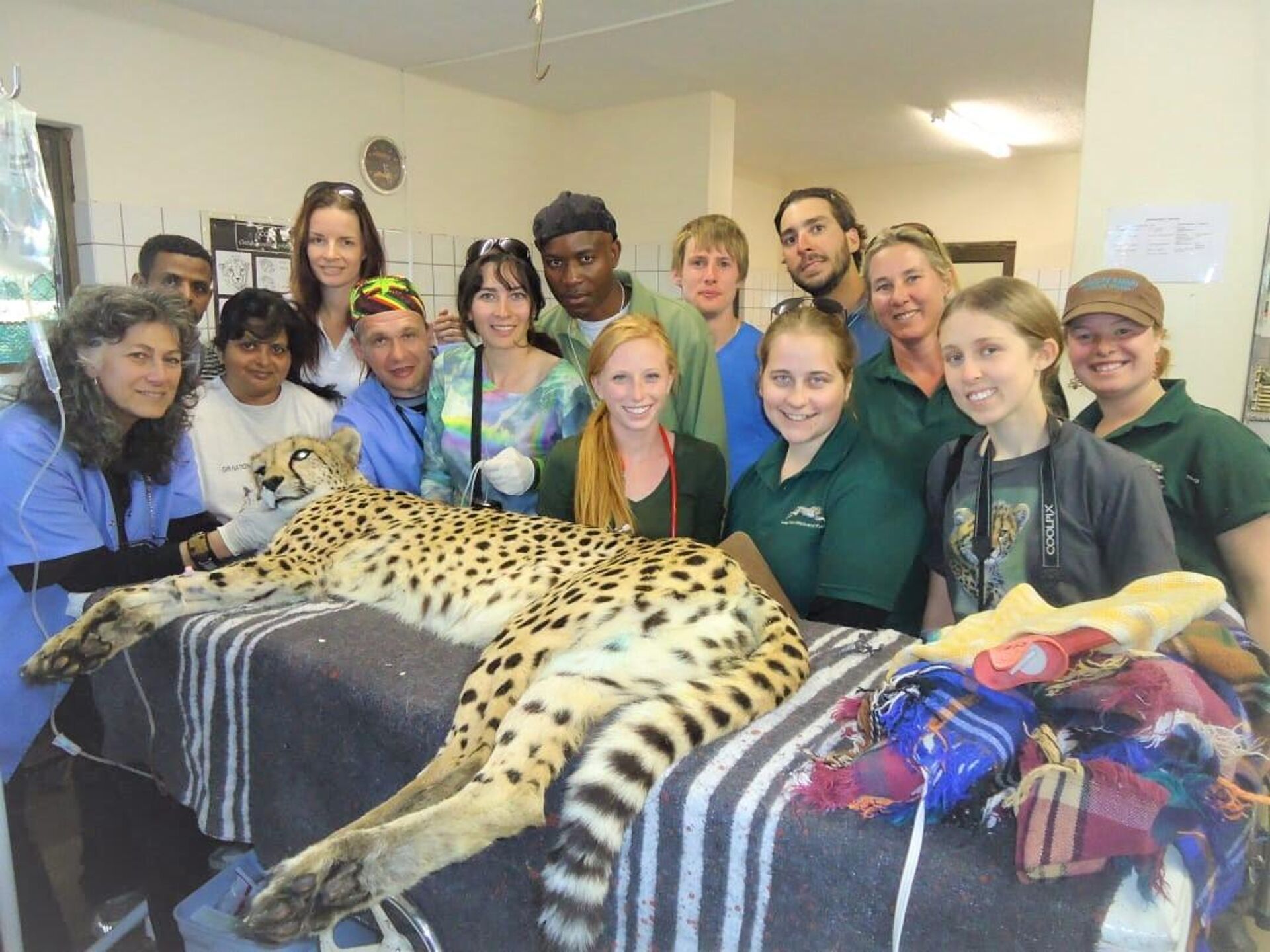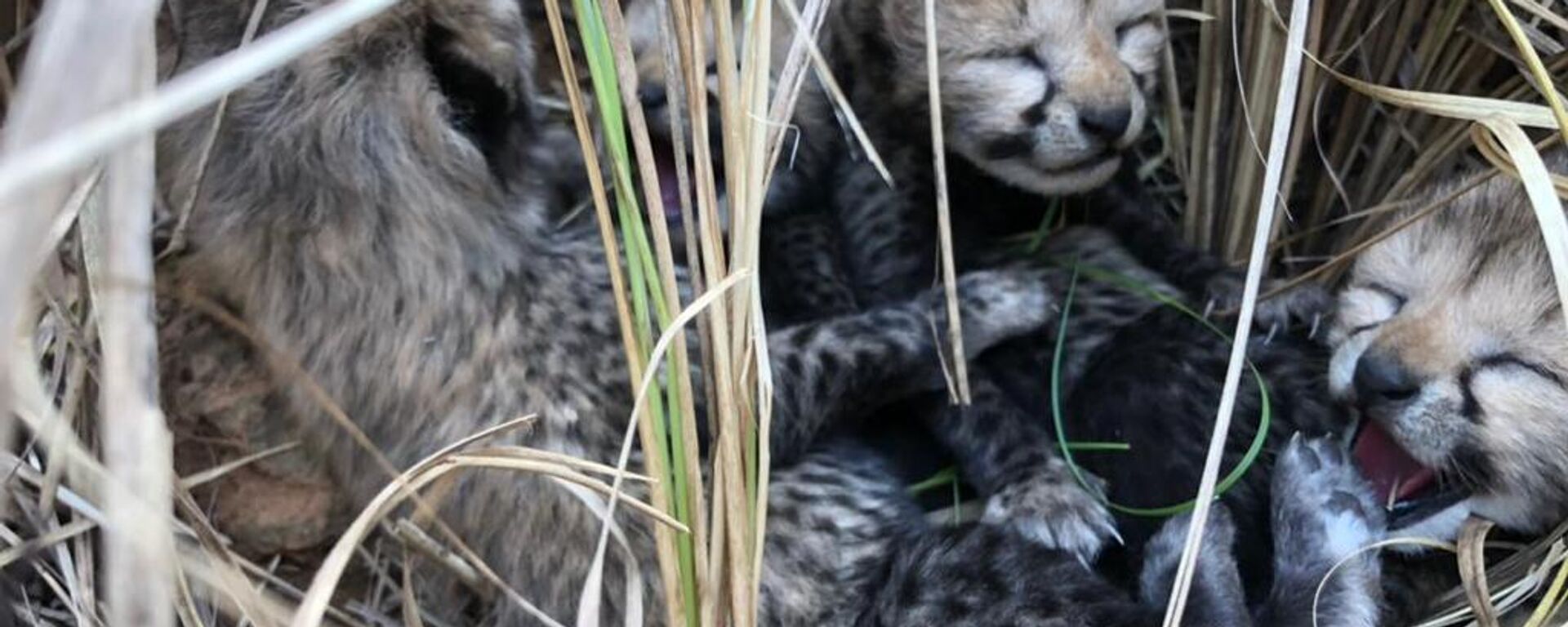'Cheetah Lady’ Opens Up About Challenges Faced in Reintroducing Big Cats to India
10:00 16.07.2023 (Updated: 12:08 22.11.2023)

© Photo : Pradnya Giradkar
Subscribe
The Indian government launched 'The Cheetah Revival Project' last year which aims to bring back the species that became extinct in the country because of poaching during the British Raj until 1947.
The reintroduction of the Cheetah to Indian soil last year after over 70 years of extinction was a historic moment for India.
The world’s fastest land animal, which was officially declared extinct from India in 1952, slowly made its way back to India with the import of 27 African cheetahs from Namibia and South Africa and the birth of four cubs at Kuno National Park (KNP) in Madhya Pradesh state's Sheopur district.
However, the project was hit by several setbacks with the death of five adult cheetahs and three cubs one after another in the past four months.
Out of 20 imported cheetahs, 11 have survived, along with a four-month-old cub.
September 2022: Prime Minister Narendra Modi made history by releasing eight Namibian cheetahs - five female and three male - into a small quarantined enclosure at Kuno National Park (KNP) in Madhya Pradesh state's Sheopur district.
February 2023: 12 more cheetahs arrived at KNP from South Africa and all of them were being tracked by radio collars.
March 2023: Four additional cheetahs were released into the wild at KNP. However, one of the Namibian cheetahs, Sasha, later succumbed to a kidney-related ailment while Cheetah Jwala, earlier known as Siyaya, gave birth to four cubs.
April 2023: Another cheetah, Uday, from South Africa, died due to heart failure.
May: A female cheetah, Daksha, who was brought from South Africa, died due to a fight with a male cheetah during mating. Three out of four cubs of Cheetah Jwala, who were born in March, died due to dehydration and weakness.
The Supreme Court declared that the concentration of cheetahs in one location was excessive and directed the government to seek an alternative habitat, either in the state of Madhya Pradesh or Rajasthan.
On 19 May, two male cheetahs named Agni and Vayu and a female named Gamini were released at KNP.
The Supreme Court declared that the concentration of cheetahs in one location was excessive and directed the government to seek an alternative habitat, either in the state of Madhya Pradesh or Rajasthan.
On 19 May, two male cheetahs named Agni and Vayu and a female named Gamini were released at KNP.
July: On Tuesday, a male African Cheetah, Tejas, died in KNP due to suspected infighting.
On Friday, another male African cheetah, Suraj, died at the national park in Madhya Pradesh today. The cause of the death is yet to be ascertained.
On Friday, another male African cheetah, Suraj, died at the national park in Madhya Pradesh today. The cause of the death is yet to be ascertained.
Pradnya Giradkar, also known as India's Cheetah Lady and an expert in cheetah conservation, told Sputnik that the recent deaths of cheetahs in KNP should not be interpreted as a sign of the project's failure.
Giradkar was mentored by Dr. Laurie Marker, a renowned wildlife researcher and executive director of Cheetah Conservation Fund (CCF), who played a key role in reintroducing Cheetah in India.

India's 'Cheetah Lady' Pradnya Giradkar, working on cheetah conservation and revival in India
© Photo : Pradnya Giradkar
What is Causing the Deaths?
When the cheetahs are translocated to a new place and introduced into a new environment, their mortality rates are higher.
“Cheetahs have been listed as a vulnerable species by the International Union for Conservation of Nature (IUCN), and their mortality rates are high not just in India but in Africa as well,” Giradkar said, who was the first Indian to be trained by the Cheetah Conservation Fund (CCF), the global institution working to save the big cats.
Referring to research, Giradkar said that Asian cheetahs and African cheetahs are genetically different but the difference is negligible.
“Cheetahs are not new to the Indian environment. They became extinct in 1947 due to overhunting and declared extinct in 1952,” she said.
“As per IUCN guidelines, the continental range of African cheetahs are well-adapted species almost in a similar environment. But due to the lower genetic diversity, Cheetah faces difficulty in adapting to the changing environment and have poor sperm quality,” Giradkar said, who lived with 52 cheetahs in Namibia during her study.
On the other hand, the newborn cubs' mortality rate is much higher in Africa, she added.
“Research done by well-known geneticists Dr. Stephen O’Brien and Dr. Laurie Marker in 1985 says that the mortality of cheetah cubs is more than 70% in captivity. It will be definitely reduced when cheetahs are released in their free range,” Giradkar explained.

Cheetah conservation expert Pradnya Giradkar with her mentor Dr. Laurie Marker, and team of researchers
© Photo : Pradnya Giradkar
Why Cheetah Revival is Important for India?
The government introduced the Cheetah Revival Project with the aim of restoring the natural biodiversity and ecosystem of India and will make the habitat healthier.
Reportedly estimated to cost over INR 9 billion ($109 million), this conservation project is set to become one of the most expensive in India.
Under this initiative, the government plans to introduce 50 cheetahs into several national parks within a span of five years.
“Translocation at regular intervals will make cheetah projects successful and will help in restoring open forest and grassland ecosystems. This will further benefit indigenous communities at large, attract tourists to see the big cats, and increase revenue for the state,” Giradkar said.
Tackling Challenges
After frequent deaths of African cheetahs, a team of researchers and scientists have been sent on a study tour to Namibia and South Africa.
In May, the government also appointed a new 11-member high-level steering committee, comprising national and international experts, to oversee the implementation of Project Cheetah and provide suggestions on the opening of the cheetah habitat for eco-tourism.
"The scientific studies on the ecological interaction between habitat composition, habitat quality and demography of cheetahs and their prey is required to maintain viability," Giradkar said.
She stated that in order to prevent conflicts between humans and wildlife, it is essential to increase conservation awareness among students, teachers, stakeholders, and indigenous communities in the rural areas surrounding KNP.
This will also help to address and prevent conflicts between cheetahs and humans, she added.
"We should train the local leaders through advocacy and leadership programs for sustainable development and conduct various training, like eco-tourism, agroforestry, forest guards, and guides to indigenous communities to improve their socio-economy," she said, who has been addressing these issues through her NGO, Wildlife Conservation and Rural Development Society.
Cheetah Poaching in Africa
Amid several cheetah conservation projects, Giradkar told Sputnik that the biggest challenge is to prevent them from poaching.
"Cheetah is a wide-ranging cat, with up to 82% percent of its population occurring outside protected areas in Africa and the number is only 6,674," she said.
With its graceful beauty and astonishing speed, the magnificent cheetah has become a status symbol often in Gulf States and many smuggle cheetah cubs to the Middle East mostly from African countries, taking advantage of political instability in this region," she added.


